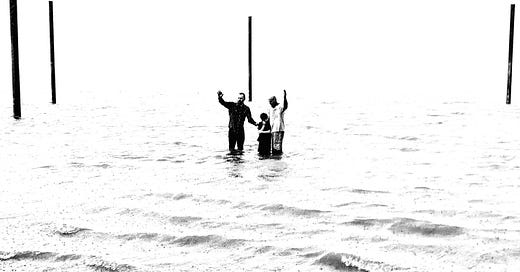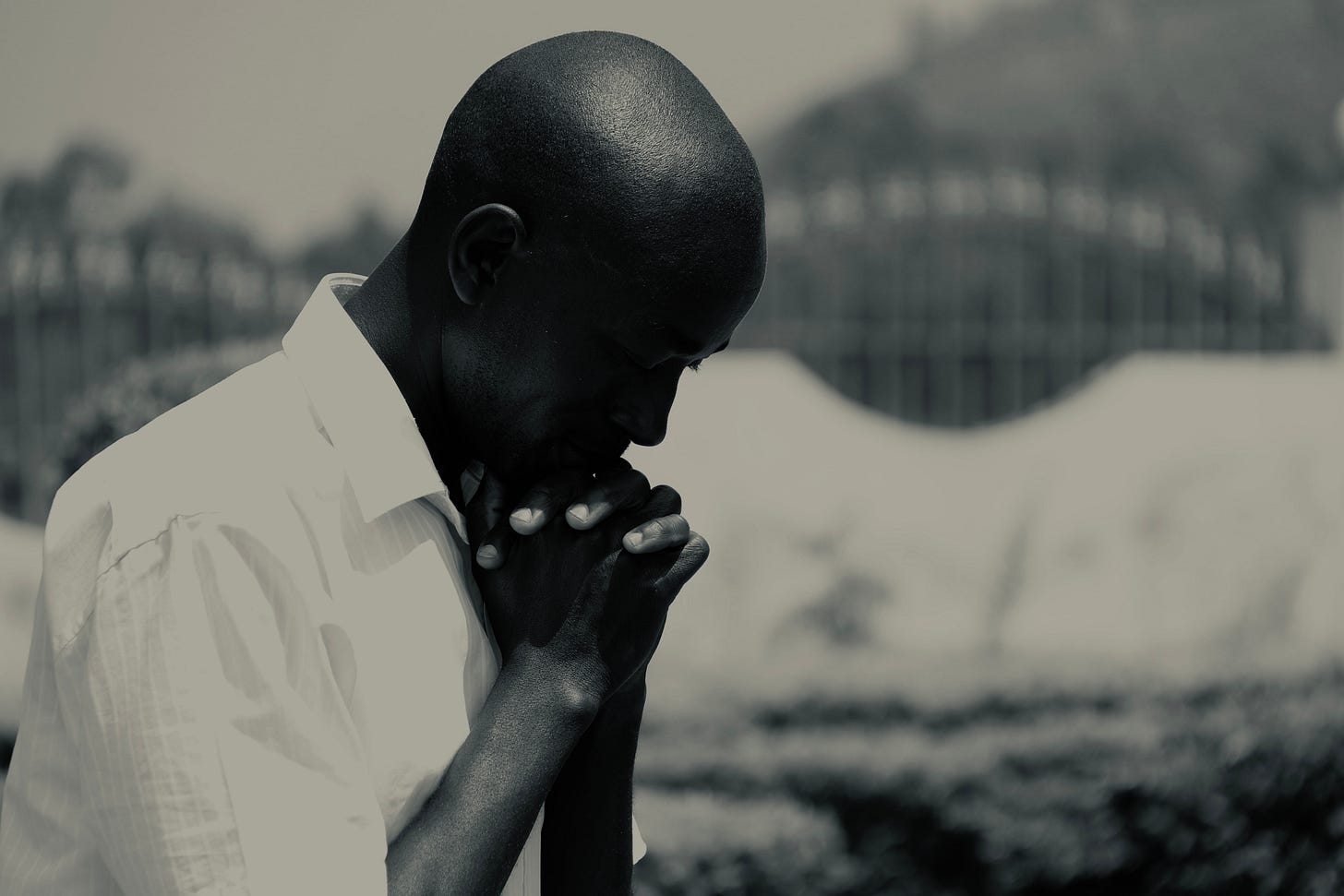The Lord’s prayer, or the “Our Father,” as some refer to it, begins with the plural pronoun, “our.” Sometimes it’s worth exploring what the biblical writers didn’t say, in addition to what they did. One must be careful not to get carried away because our imaginations can come up with all sorts of absurdities. For example, the New Testament never says “God is Trinity.” But God is definitely Trinity.
Nevertheless, exploring what isn’t said is still worth doing even if we from time to time come up with fringe ideas. Good ideas often come from pushing a thought experiment to the extreme before letting it rebound into something useful. The Lord’s Prayer offers an interesting case not only because it’s Jesus’s words, but also because there really are significant theological and pastoral implications from paying attention to what Jesus didn’t say.
Consider this: Jesus didn’t say, “Pray: ‘His Father who’s in heaven.’” It’s easy to imagine that Jesus could have suggested this because the Father is specifically the Son’s Father. Like I said, God is Trinity. With that in mind we can imagine a prayer practice that would always emphasize our basic Trinitarian commitment. Were that the case, we’d be invited to appeal to Jesus and to his unity with the Father as the basis upon which we have the right to pray. But that’s not what Jesus said. Rather, he invites us to pray “our Father.”
The reason Jesus doesn’t invite us to pray “his Father” is because Jesus wants us to understand that his Father is the Father of each and every Christian as well. As Christians, we are each in Christ and we are each invited to call God “Father” with Christ. Those two prepositions “in,” and “with” are really important. We are in Christ because we are baptized into his death and resurrection, as Paul says in Romans 6. And we address God as Father with Jesus by the Spirit because we are in him and therefore can only speak to God with him and by his Spirit. As Jesus says, we are one with him even as he is one with the Father (John 17:22).
The way I’ve always put this for my church is that everything that happened for Jesus at his baptism is what happens for us in our own baptisms. When Jesus came up out of the water, the heavens split open, the Father called Jesus his beloved Son, and the Spirit descended on him as he spoke. At our baptisms, the sky is similarly split open, and God says to each and every one of us “you are my beloved child with whom I am well-pleased.” The same Spirit descends on us. And because he’s the same Spirit, we are not a child other than the Son that Jesus is. We are one with him, and so he invites us to pray with him and in him, "“Our Father.”
Another way Jesus didn’t teach us to pray is by saying, “My Father, who’s in heaven.” This might seem like a reasonable way to pray given that God is indeed the Father of each and every one of us because we've been baptized. We might think that should demand the intimacy of saying “my Father.”
It’s absolutely true that the Father is the Father to each and every one of us. But that’s not how Jesus taught us to pray. Jesus taught us to pray “our Father” because we, as individuals, have no particular or unique claim on God. It’s not that he’s my Father and not someone else’s Father. Rather, he’s the church’s Father. He’s the Father of the Body of Christ, which is the temple of the Holy Spirit. And the body is one with Jesus. So, he’s our Father in the sense that we, together, corporately call him “Father” as the church.
It’s important to add that while the church is one with Christ by the Spirit, the church is also distinct from Christ in that the church is sinful. Jesus isn’t. But that all the more means he’s our Father, in that he’s Jesus’s Father and the church’s Father. The distinction demands the plural.
In sum, he’s not “his Father” or “my Father;” he’s our Father.
There are two very simple implications to everything I’ve said here:
First, the Lord’s Prayer is meant to be a corporate prayer of the church. Free church movements, including evangelicalism and pentecostalism, have gotten away from praying the Lord’s Prayer together when the church gathers. We need to get back to that so it makes sense for us to pray “our Father.”
Second, the Lord’s Prayer is meant to be prayed daily by every individual Christian. But even as each Christian prays it, they are rightly reminded that being a Christian is not about their private relationship with God. They are in and with Christ, so they pray with Christ by the Spirit. They are also rightly reminded that to pray is always to pray as but one member of the body of Christ.
One is not and cannot be a Christians by oneself.
Thoughts? Comments? Questions?







So good. Great teaching Pastor. I recently preached Matthew 6. It's a huge chunk for one message, since I have a serious on the Lord's Prayer alone. It was assigned me as part of a series on The Sermon on the Mount in the church that I am part of. They've asked me to join the teaching and preaching team. I focused on the three When's. I called the message "When, Not If". When you give. When you pray. When you fast.
Anyhow.....I made it my purpose several years ago to pray the Lord's Prayer each and every day before I stand up out of bed. It has transformed my prayer life. I have daily journaled my prayers and bible study for years. But this focus on Jesus prayer has really really impacted my life.
Thanks for another great word.
This is a great way to look at the Lord’s Prayer. Thank you for the reflection. It also brings to mind the promise that a Christian will never be alone. Once the Holy Spirit moves in all our conversations with God will consist of at least three people. Ourselves, the Holy Spirit, and whoever we speak with.